

THE COLORS OF XINJIANG - Sixth World Media Summit (FOTO/VIDEO)
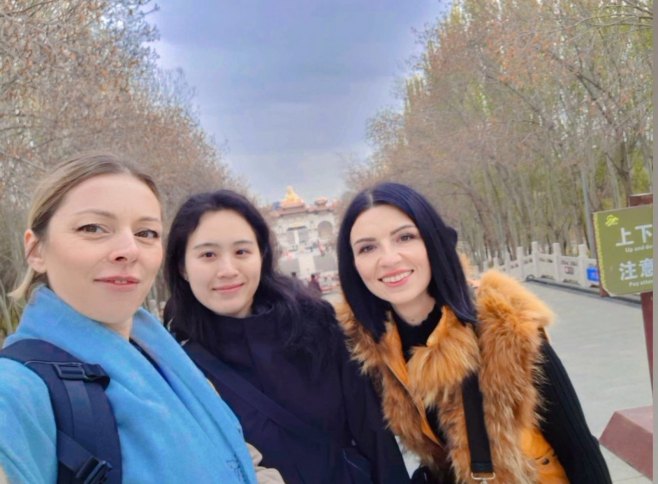
The purpose of our visit to Ürümqi was the World Media Summit organized by the Chinese state agency Xinhua and the Government of the Xinjiang region. The World Media Summit is a premium platform that brings together state news agencies, media from around the world, and UN agencies. The theme of this year’s summit, the sixth in a row, was Artificial Intelligence and Media Transformation. The summit analyzed and discussed potential solutions and overcoming the challenges arising from the new technological revolution. I liked especially the summit conclusions asserting that humans have the final say in artificial intelligence use in the media, but that nonetheless artificial intelligence should not be feared. On the contrary, all the benefits of artificial intelligence should be implemented while respecting journalistic ethics, says one of the kay summit messages.
All attending editors, deputy directors and directors had the opportunity to learn about the natural beauty and humanity of Xinjiang. Besides the technological and economic progress that is evident at every step, I do not know what brought me grater delight, the nature or the people. I have been to many countries and I used to say with pleasure that my favorite travels were those to Russia, where I had undertaken doctoral studies and made friends, and to Italy and Greece that are close to us. However, the trip to China is my most beautiful one to date, and people from the Xinjiang region are the kindest hosts I have had the opportunity to meet.
Besides the volunteers, mainly educated young people, on hand to us foreigners at every step, a few details from the Ürümqi airport will remain specially imprinted in my memory. While we were waiting for the flight, a local passenger approached us on his own initiative to help us and tell us not to worry, as he was taking the same flight, and that we were in the right place. Another slightly younger passenger spoke to me through an automatic translator (often mentioned at the summit as a positive product of AI) in Russian, taking me for a Russian. Still, my dearest detail from the Ürümqi airport was the view of the runway from the airplane window of three airport workers waving to us passengers, strangers and foreigners on the plane. I waved back spontaneously, feeling grateful for the opportunity to spend time in the city. We Slavs are said to be hospitable and kind to foreigners, but I have not seen anything like this in any Slavic country (and I have been to most Slavic countries), or in the countries of the European Union.
The Switzerland of China
In terms of nature, the Xinjiang region reminds me of my favorite country, Switzerland, where mountains, lakes, rivers, trees and animals live in harmony with people. No trace of litter anywhere, each path manicured and marked. Fresh, mountain air and, on top of all that, a diversity of people, just like in Switzerland.
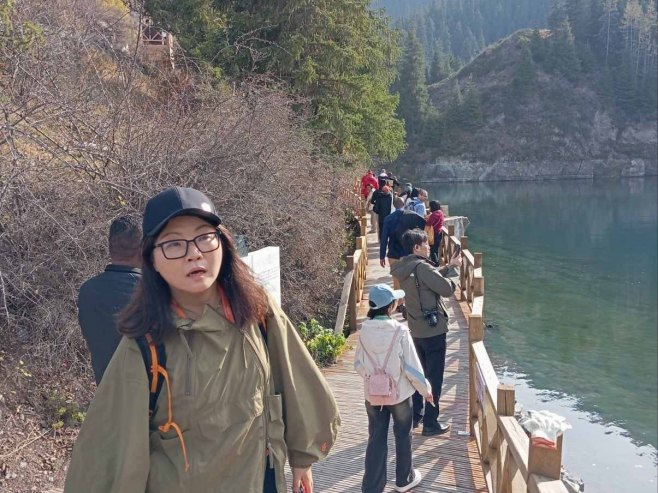
However, concerning local products, I find Xinjiang more interesting with local food and bread on famous bazaar stands, vegetables and fruits, local juices... I simply could not decide where to go first…And clothes of a very refined design and materials! I have not seen such an original design in Europe. It seems we on the west side have lost our originality in designing clothes. All European designers follow the same pattern trends, while Ürümqi shop windows are adorned with feminine dresses, men’s and women’s suits, scarves and ties made of the finest silk.
What I liked in particular was an element of Chinese tradition added to designer clothes. The mountainous areas of Xinjiang are dubbed the Switzerland of China for a reason. During excursion to a mountain-rimmed lake with a Swiss-like view, I wandered off alone, breaking away from the group to contemplate to the traditional Chinese music and song of a woman playing by the lake. I find traditional Chinese music really appealing, it soothes the mind and clears the thoughts. Soon after that, I heard another, slightly more lively Uyghur song. I approached and saw girls dancing in traditional dresses. Soon I was invited to join the dance in a traditional dress.
I was enjoying the song and dance until a young volunteer called me back to the bus, saying that the group was waiting for me and that it was time to return to the hotel.
Hospitality
Our accommodation was at the Hilton Hotel, offering prime conditions. What made me particularly happy was the welcome gift upon arrival at the hotel – a stuffed panda handed to me by a smiling Chinese young man.
The menu was excellent, and I miss Asian food and local spices. The same goes for Asian food restaurants. I am already trying to make Asian specialties at home in Banja Luka and to use chopsticks, a gift from the Banja Luka Confucius Institute. As to the means of transport, we travelled in high-quality new Chinese cars and buses. The planes were also owned by Chinese companies and had professional crews. On the Vienna-Beijing flight, I spoke with the Chinese passengers sitting next to me. We engaged in a discussion about sutlijaš. Need I say that my Chinese fellow passenger from the plane approached us immediately on his own initiative at the Beijing airport to help us to find the documents required for foreigners to enter the People’s Republic of China? At the airport, we heard and saw both Serbs and Croats and concluded that we are frequent Chinese guests, for a reason I would add.
Unity of opposites as way of life
Another important segment that enriched my trip to Ürümqi spiritually were visits to the Islamic Cultural Center, the mosque and the Buddhist temple.
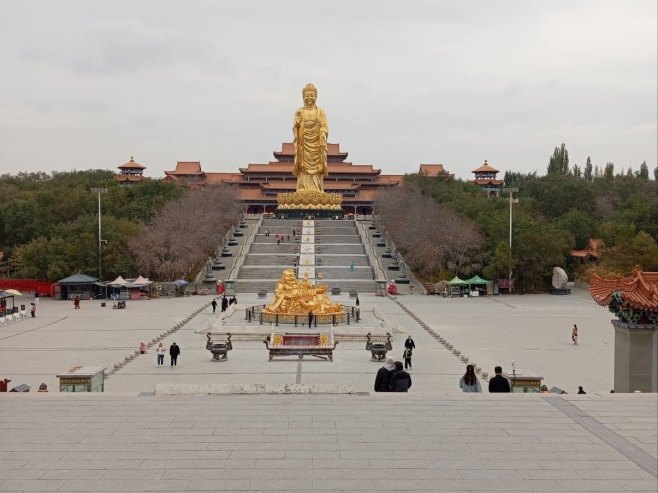
Before focusing on that, I would like to note a strange coincidence. In Montenegro, there is the Ostrog monastery, holding the relics of one of the greatest Serbian and Orthodox saints, Basil of Ostrog, the Wonderworker. He is venerated by all believers in the Balkans and worldwide, and the miracles associated with the Saint are immeasurable. Year after year, an increasing number of tourists from Asia visit the Ostrog monastery, and the late Metropolitan Amfilohije of Montenegro and the Littoral told me in an interview a few years back that he had baptized a Chinese woman named Po below Ostrog. I visited Ostrog this year on Good Friday, the saddest day for Christians. I met many Asian tourists, from China, Singapore, South Korea and Japan. On the way down the mountain, I met a Singaporean married couple hiking towards the top, to the monastery. They asked me if it was nice at the top. I said yes and that they would feel extraordinary serenity. We took photos together and they invited me to visit Asia and Singapore, to which I replied that I hoped to visit Asia and China at least once.
After the pilgrimage, my wish came true and there I was visiting Asian shrines. It is a very strange feeling to come from a country with a large number of mosques and to visited one for the first time in Xinjiang, the People’s Republic of China, feeling nice and welcome. A lecturer from the Ürümqi Islamic Cultural Center and the president Islamic institute Abud Rakev Tumuniaz showed us a large library containing books, modern electronic library equipment, classrooms, and then took us to the mosque where we sat on the floor and listened to his wise words. It was a great pleasure to be in such surroundings, and the lecturer left an impression of particular authority. My feeling was that that man cared for the students of the Islamic Center same as for his own family. I gained new insights while listening to the lecturer at the Islamic Cultural Center praising especially the freedom to choose religion in socialist China.
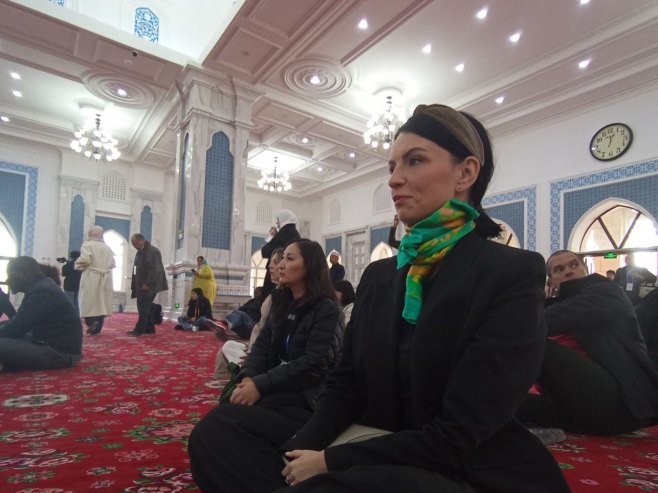
I visited another religious building for the first time in my life, a Buddhist temple. I was left with a special impression of the visit to the temple, feeling calmness and tranquility. Our guide Isabel Kayen Yao took us there. She explained to us how to pray, light candles and make donations to the temple. It was a wonderful experience, music in the temple, Buddha statue, candles of most diverse colors, people praying... Similar to being in a church.
I remembered again the Ostrog Monastery and the Asians I had met there, and realized once more how everything in the world is connected, as the greatest Serbian writer Miloš Crnjanski claimed. As a side note, he was an avant-garde writer, the founder of Sumatraism, a unique movement in Serbian literature named after the Indonesian island of Sumatra. In addition, he was a great connoisseur of Chinese and Japanese lyric poetry, and specifically concerning China, he was the first to introduce contemporary Serbian culture to the Chinese literary creative spirit after the period of the Church Slavonic language. In 1923, Miloš Crnjanski published the Anthology of Chinese Lyric Poetry.
A faint shadow of Buddhism has reached us, but Lao-Tzu’s immaterial expression, Tu-Fu’s ethereal moods remain unknown, having no equivalent here, which makes such an anthology necessary.
Translating Chinese poetry from French, Crnjanski tried not to strip away ‘the color from those distant, ancient and tender expressions.’ How important that was for him is revealed by the fact that in the end he consulted young Chinese students to have the most faithful translations. With a kindness that is eternal with them, they leaned over the books and advised me.
After the trip’s spiritual significance and naturally the business goal of our travel to Ürümqi, I do not want to leave out a few words about the technological progress of the People’s Republic of China. My first encounter with a modern Chinese car was at the airport and it delighted me. Specifically, self-opening doors, leather seats and naturally, a friendly driver. On one of the excursions, we were organized a visit to the Guangzhou Automobile Group Motor (GAC group). There, we saw cars that are exported to Western Europe and advanced countries such as Switzerland, as well as robots assisting in car manufacturing thus replacing human physical involvement on some tasks.
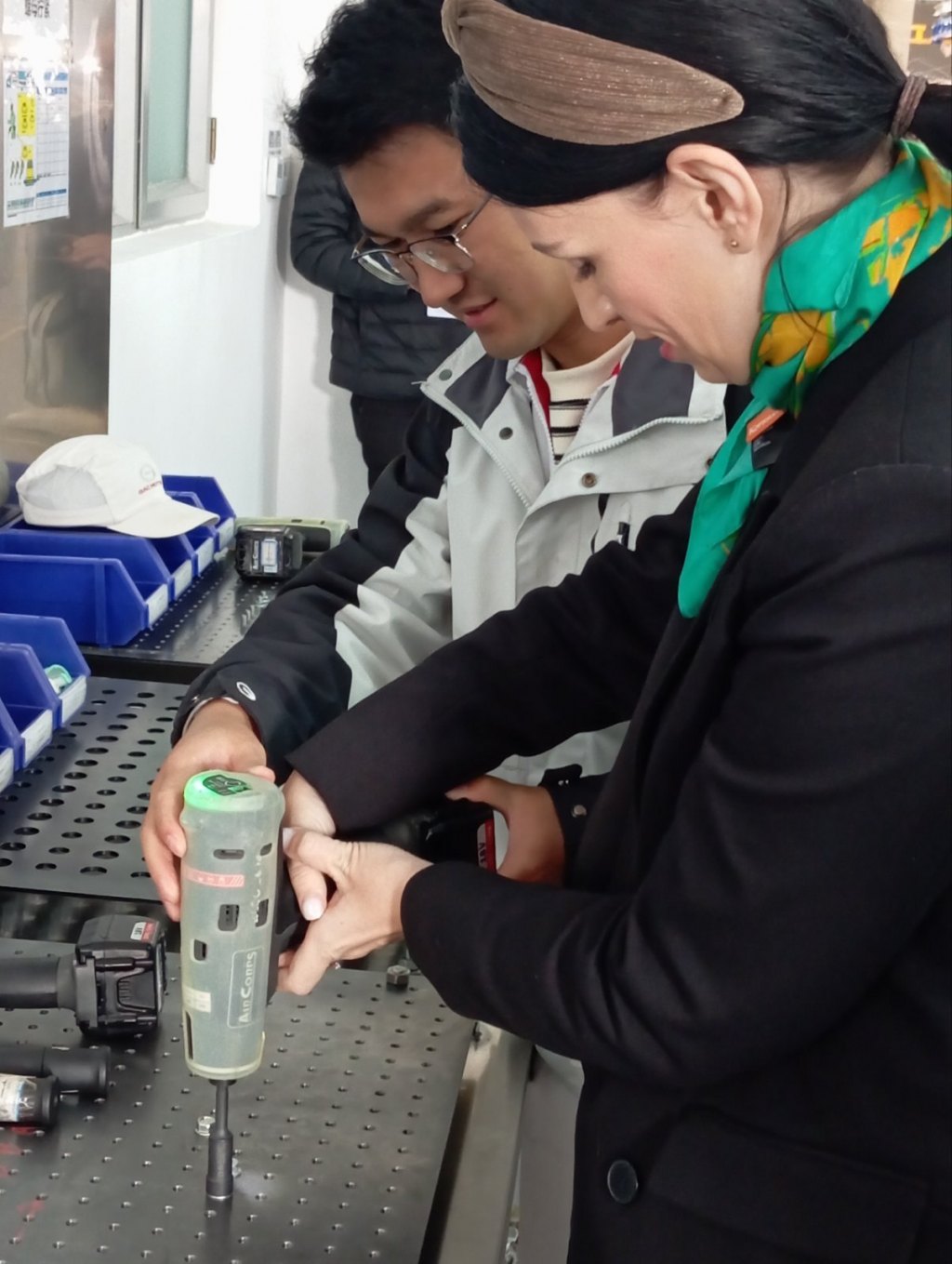
In addition to that company, we visited China Energy Group Control Center or China Energy Investment. The company’s core business is electricity production and development, environmental protection, investments, construction, operation and management, transport industry, biotechnology, finance, health industry, agricultural development, comprehensive land development, electricity sales and industrial investments.
The company owns a wind park in Tuoli, Ürümqi, and their projects have been developed and accepted in countries around the world. Wang Min, director of the company’s executive board, was among the speakers at the World Media Summit and expressed satisfaction with media delegations from around the world visiting the company.
One final note about the culture. I left the Lift Your Veil opera performance in the Great Theater of the city of Ürümqi amazed. The feeling arose from the richness of dance, song, costumes, customs and professionalism of the artists on stage, and until now, I have known so little about a great culture. Therefore, I wish all readers of this travelogue to be able to imagine themselves in China, Xinjiang and Ürümqi, even though they have never been there. Just as our greatest writer and admirer of Chinese and Asian word, Miloš Crnjanski did when creating Sumatraism.
Head of Communication and Promotion Department RTRS
Ana Vojinović

